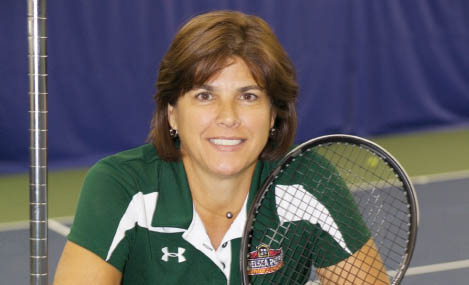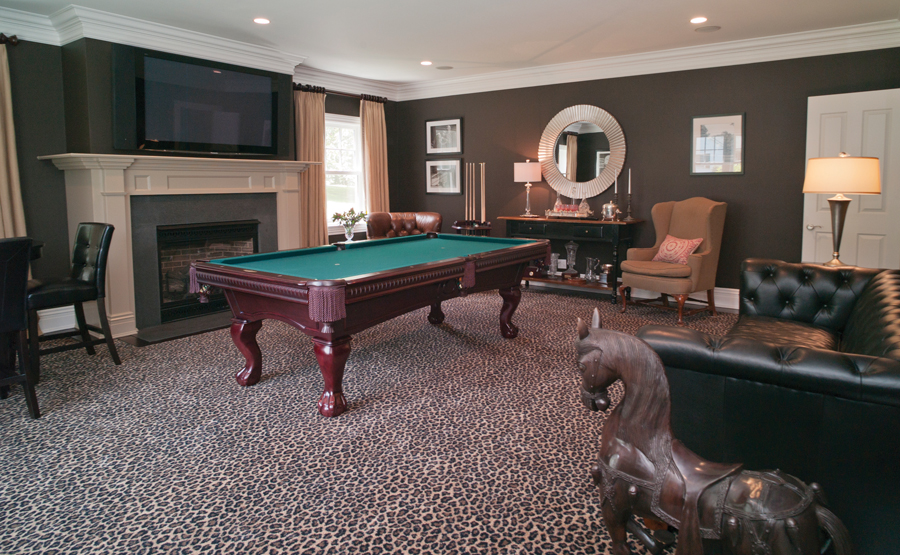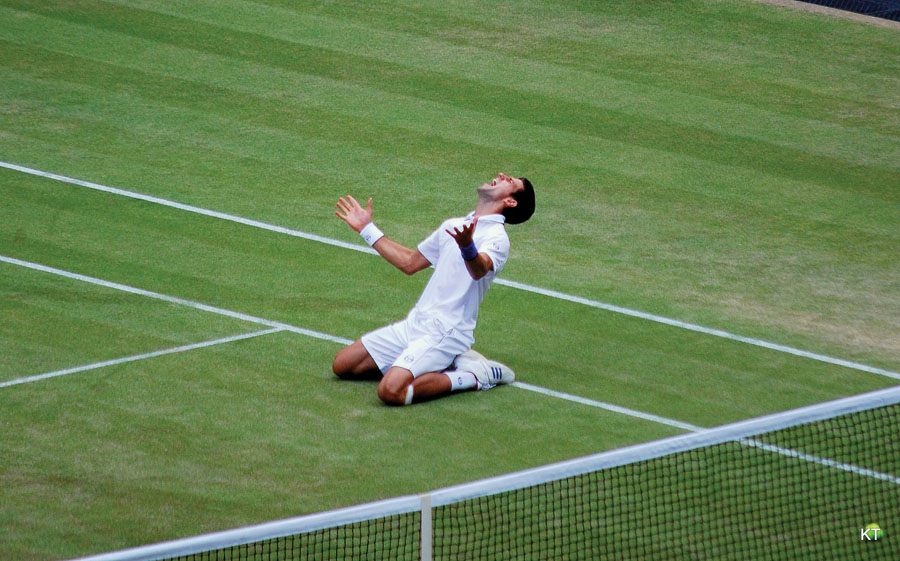Photograph by Bob Rozycki
Chelsea Piers clearly had its eye on the ball when it opened in Stamford last year and hired tennis great Gigi Fernández to head up its tennis program. The two-time Olympic gold medalist and International Tennis Hall of Famer, who has 17 Grand Slam doubles titles under her belt, has leveraged her star power to recruit talent and lure clientele to the 65,000-square-foot tennis club. The Puerto Rico native, who had shown exceptional hand-eye coordination at 3 years old when she could rally on the court, asked her parents for tennis lessons for her 7th birthday. The rest is, well, sports history. The Darien resident gives WAG the inside scoop on her career, playing strategies and professional tennis:
Did you have any sports role models growing up?
“In Puerto Rico, girls in the ’70s really didn’t do sports. You were supposed to get married and have kids, so I really didn’t have any role models. I’m the first Puerto Rican female athlete, at least to make a living at sports; the first to turn pro; and the first to win an Olympic gold medal.”
You recently married your long-time partner, Jane Geddes, and are co-parenting 4-year-old twins Karson and Madison. How has motherhood changed you?
“It’s life-changing, especially for a professional athlete, because my life was always very me-centric and then all of a sudden these little angels are born and it’s not about you anymore.”
Would you like your kids to play tennis professionally?
“I take the Fifth (laughs). It’s a very difficult lifestyle. There are a lot of great things about it and I wouldn’t change it for the world, for myself. I think it was a great life experience, and it’s given me the most amazing lifestyle. But knowing what I know now, would I want that for my kids? I don’t think I would, because now I know what my parents must have felt when I just left at 18 years old. For 15 years, I never saw them, except maybe twice a year. And back then there were no cell phones, so I would just disappear for months at a time and call once in a while.”
How would you compare the level of professional tennis today versus when you played?
“Stemming from the fact that today they make so much more money than we did, they’re able to have these support systems that we didn’t have. I pretty much traveled by myself until I started doing well and I could afford hiring a coach. Now they have coaches, trainers, sports psychologists; they have their own stringers… so many people traveling with them.”
Is the fitness level better today?
“When I started playing, Martina (Navratilova) had already started the fitness craze. I think the top players were already fit. Chrissie (Evert) had started to get fit. Steffi Graff was very fit. So the players coming up knew that if they didn’t have that fitness level, they couldn’t compete.
It’s different now. It’s like they’re all fit. Back then you could still be a little chubby and not in super shape and be in the top 40.”
A lot of players end up having injuries and needing surgery. Did you have any during your career?
“I was really lucky, because I was injury-free throughout my career. Then when I retired is when I got hurt. People give me a hard time here at Chelsea Piers, because I take the elevator instead of the stairs. And I say, OK, when you put your body through what I put my body through, when every one of those steps hurts, every muscle, every joint and every bone in your body, then you can judge me. (Laughs) In the meantime, I’m going to continue to take the elevator.”
As you know, much of the game of tennis is mental. How did you overcome nerves?
“I’m Latin and I have a fiery temper and I’d lose my mind. In 1992, I went to the Deepak Chopra center in Lancaster, Mass., and I learned to meditate. That was in April and then I won the French Open in May, Wimbledon in July, an Olympic gold medal in August and the U.S. Open in September – all in a four-month span, all while meditating.
I would use some of the relaxation skills you learn in meditation. I would use them prior to matches. I would use them in changeovers and between points. Before that I’d had really moderate success.”
What strategies or tips do you give people at Chelsea Piers?
“Move your feet. People tend to freeze when they’re tight. If you’re not conscious about telling yourself to move your feet, (you) stop.
“I used to tighten my arm and relax it. Because people get really tight with their arms, so you want to have relaxed arms. Tighten and relax, tighten and relax. Also, take the hand off the racket. If you’re holding the racket, there’s tension in the muscles. Relax your arm before you serve.”
What are the biggest mistakes people make in a match?
“Getting ahead of themselves. They think, ‘Oh my God, what happens if I win?’ Or ‘Oh no, I’m going to lose.’ Rushing when they’re trying to close out a match. Slow down. Stay in the moment and only worry about the next point.
“If you watch the pros, they are really deliberate when they’re closing out a point. They take their time, they walk around and they really try to compose themselves in between points.”
Who will you be rooting for at the US Open?
“I like Mónica Puig from Puerto Rico. I don’t think she’s going to win the US Open, but she’s a player to watch.”
Is there anyone in tennis whom you admire the most in terms of career and conduct on and off the court?
“I really admire Chris Evert, because she’s stood the test of time in a really graceful way. She made the transition from superstar to mom, which I can relate to. She’s had her ups and downs and she’s back again commentating. I tell her every time that she’s my favorite to listen to and she thinks I’m kidding but it’s true. She’s so complimentary of everyone, so gracious and it’s not about her anymore.
“Some of the players that commentate, it’s still about them. Hey, you’re retired. You’re supposed to be commentating on the match and not about yourself and they still don’t get it. I won’t mention names, but you could probably figure out whom I’m talking about.”
What’s so great about tennis?
“Tennis is a great lifetime sport. You can take it up in your 30s and still become successful at it, and you can take it up at 4 and play till you’re 80.”



